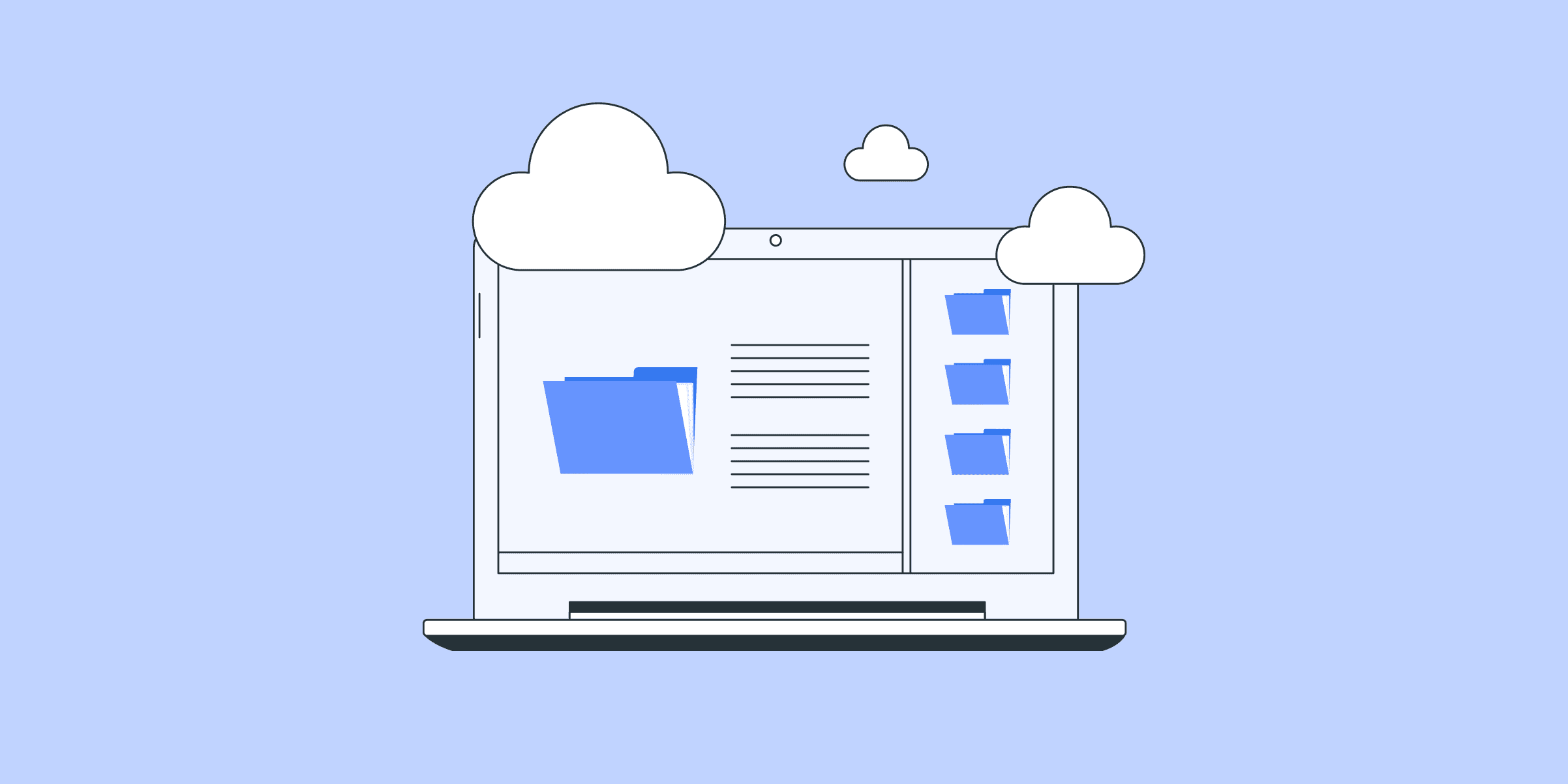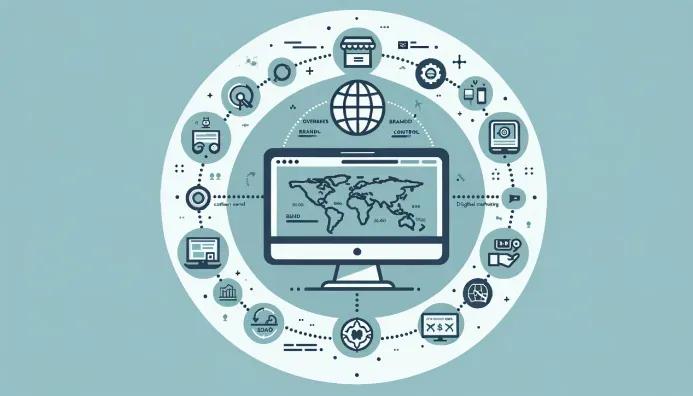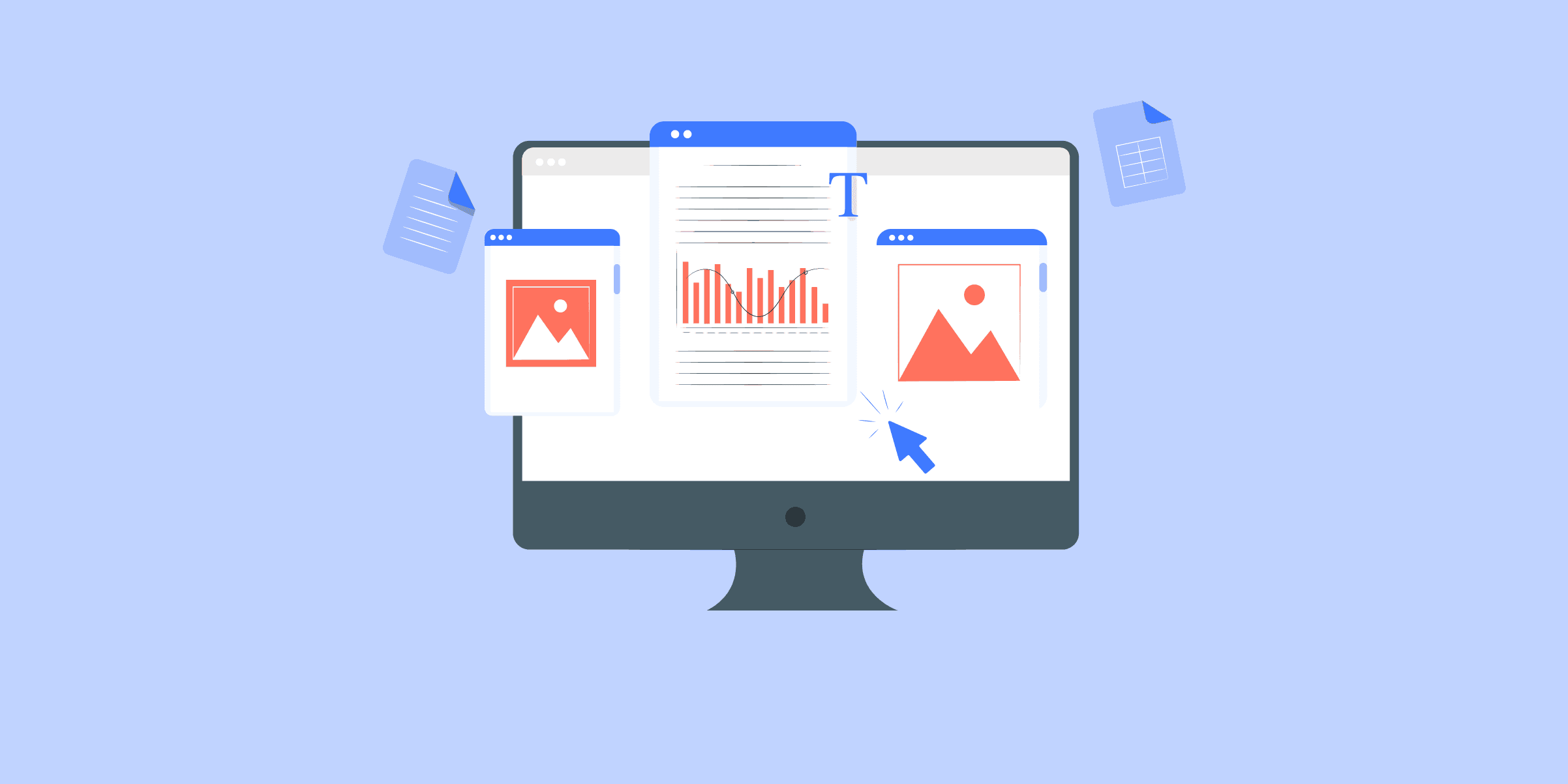
The Importance of Proxy IPs in Using Fingerprint Browsers
In today's interconnected digital landscape, online privacy and security have become increasingly paramount. Among the various tools available to safeguard one's online identity, fingerprint browsers have gained significant attention. These browsers offer advanced fingerprinting techniques to enhance privacy by making it more difficult for websites to track and identify individual users. However, the effective use of fingerprint browsers often requires the integration of proxy IPs. In this article, we explore the reasons why using proxy IPs is essential when utilizing fingerprint browsers.Understanding Fingerprint BrowsersBefore delving into the role of proxy IPs, let's first understand what fingerprint browsers are and how they function. Fingerprint browsers are specialized web browsers designed to minimize the digital footprint left behind while browsing the internet. Traditional web browsers, such as Chrome or Firefox, often transmit a wealth of information to websites, including user-agent strings, IP addresses, cookies, and more, which can be used to track and identify users across different websites. Fingerprint browsers employ various techniques to obfuscate or alter this information, making it more challenging for websites to identify and track individual users.The Need for Proxy IPsWhile fingerprint browsers offer enhanced privacy protection, their effectiveness can be further amplified by integrating proxy IPs. Here's why:IP Address Anonymity: Proxy IPs serve as intermediaries between a user's device and the internet. By routing internet traffic through proxy servers, users can mask their real IP addresses, making it more difficult for websites to trace their online activities back to their original location. This enhances anonymity and privacy while browsing the web.Geographical Diversity: Proxy IPs allow users to access the internet from different geographic locations. This can be particularly useful for circumventing geo-restrictions imposed by certain websites or services. By using proxy IPs from different regions, users can access content that may be restricted in their own country or region.Load Balancing and Performance: Proxy IPs can also help distribute internet traffic across multiple servers, thereby reducing server load and improving overall browsing performance. This can be especially beneficial when accessing bandwidth-intensive content or when dealing with high volumes of web traffic.Security Enhancement: Proxy IPs can act as an additional layer of security by filtering out malicious or suspicious internet traffic before it reaches the user's device. Some proxy services offer advanced security features such as malware detection, ad blocking, and encryption, further enhancing online safety.ConclusionIn conclusion, while fingerprint browsers offer significant privacy benefits by obfuscating user information, the integration of proxy IPs can further enhance privacy, security, and browsing performance. By leveraging proxy IPs, users can effectively anonymize their IP addresses, access content from different geographic locations, improve load balancing, and enhance overall online security. As online privacy concerns continue to grow, the combination of fingerprint browsers and proxy IPs represents a powerful toolset for safeguarding one's digital identity and preserving online anonymity.

The Importance of Residential Static IP Address in Today's Digital World
Are you tired of constantly losing your internet connection and having to deal with a changing IP address? Are you having trouble accessing certain websites or services because of your dynamic IP? If so, it might be time to consider getting a residential static IP address.In this blog post, we will discuss what a residential static IP address is, its benefits, and why it is important for SEO purposes. We will also provide some tips on how to obtain a residential static IP address and why it is worth the investment.What is a residential static IP address?A residential static IP address is a unique identifier assigned to a specific device or computer that remains constant and does not change. In contrast, a dynamic IP address is assigned by your internet service provider (ISP) and changes each time you connect to the internet. This means that with a dynamic IP, your device's IP address can change each time you restart your router or modem.What are the benefits of having a residential static IP address?There are several benefits to having a residential static IP address:1. Improved connectivity: With a static IP address, you no longer have to worry about losing your internet connection or experiencing interruptions. This is particularly important for businesses that rely on a consistent and stable internet connection.2. Easy remote access: If you need to access your home or office network remotely, a static IP address makes it much easier. You can securely connect to your devices without the need for complex setups or workarounds.3. Hosting services: If you want to host your own website or server, a static IP address is essential. It allows you to point your domain name to your IP address, ensuring that your website or service is always accessible.4. SEO benefits: Search engine optimization (SEO) is crucial for increasing your website's visibility and driving organic traffic. Having a static IP address can positively impact your SEO efforts by improving website loading speed and increasing reliability, both of which are important ranking factors for search engines.How to obtain a residential static IP address?Now that you understand the benefits of having a residential static IP address, you might be wondering how to get one. Here are a few options:1. Contact your ISP: Start by contacting your internet service provider to inquire about their residential static IP address offerings. They may have a specific plan or offer available for static IP addresses.2. Consider a business internet plan: If you are running a business from your residential location, you may want to consider upgrading to a business internet plan. These plans often include a static IP address as part of the package.Why is a residential static IP address important for SEO?When it comes to SEO, having a residential static IP address is essential for several reasons:1. Improved website loading speed: A static IP address ensures that your website loads quickly and efficiently for visitors. Slow loading times can negatively impact user experience and lead to higher bounce rates, affecting your website's search engine rankings.2. Increased website reliability: With a static IP address, your website is less likely to experience downtime or disruptions. This helps build trust with search engines and ensures that your website remains accessible to users at all times.3. Credibility and trustworthiness: Search engines value websites that are credible and trustworthy. Having a static IP address can contribute to your website's overall credibility and authority, positively affecting its search engine rankings.In conclusion, a residential static IP address offers numerous benefits, from improved connectivity to SEO advantages. It ensures a stable internet connection, facilitates remote access, and supports hosting services. For SEO purposes, a static IP address contributes to faster website loading times, increased reliability, and enhanced credibility.If you are tired of dealing with changing IP addresses and want to boost your website's performance and SEO efforts, consider investing in a residential static IP address. It is a worthwhile investment that can greatly impact your online presence and improve your overall internet experience.

The Importance of Ticketing Proxy in Ensuring a Secure and Fair Ticketing System
Title: The Advantages of Using a Ticketing Proxy for Seamless Online Ticket BookingIntroduction:In today's digital age, online ticket booking has become the norm for most individuals. Whether it's purchasing tickets for concerts, sporting events, or travel, the convenience of booking tickets from the comfort of your home is unparalleled. However, with the increased demand for tickets, many people encounter issues such as ticket scalping, website crashes, or limited availability. This is where a ticketing proxy comes into play, offering various benefits to users. In this blog post, we will explore the advantages of using a ticketing proxy for seamless online ticket booking.1. Bypassing Geographical Restrictions:One of the significant advantages of using a ticketing proxy is the ability to bypass geographical restrictions. Ticket vendors often restrict access to certain events or offers based on the user's location. With a proxy server, you can route your connection through a different location, enabling you to access tickets that would otherwise be unavailable in your region. This allows you to take advantage of exclusive events and offers from anywhere in the world.2. Preventing IP Blocking:Ticket vendors often employ IP blocking to limit the number of tickets one person can purchase. This is done to prevent ticket scalpers from buying in bulk and reselling the tickets at exorbitant prices. However, regular users might also get blocked if they unknowingly exceed the vendor's limit. By using a ticketing proxy, you can rotate your IP address, making it difficult for vendors to track and block your access. This increases your chances of obtaining the desired tickets without any restrictions.3. Avoiding Website Overloads and Crashes:When highly anticipated events go on sale, ticket vendors' websites often experience high traffic, causing them to crash or slow down considerably. This can be frustrating, as it could result in missed opportunities to purchase tickets. By using a ticketing proxy, you can distribute your requests across multiple IP addresses, reducing the chances of overwhelming the vendor's servers. This ensures a smoother and more reliable ticket booking experience, even during peak periods.4. Enhancing Ticket Availability:Popular events often sell out within minutes of their release, leaving many fans disappointed. Ticket scalpers and bots can snatch up tickets in bulk, making it challenging for genuine fans to secure seats. However, by utilizing a ticketing proxy, you can increase your chances of obtaining tickets. By rotating through different IP addresses and simulating multiple users, you can bypass ticket purchase limits and maximize your chances of securing the tickets you desire.5. Maintaining Anonymity and Security:Using a ticketing proxy adds an extra layer of anonymity and security to your online ticket booking activities. By hiding your actual IP address, you reduce the risk of your personal information being exposed to potential cyber threats. Additionally, using a proxy server can help protect against ticket scams and fraudulent websites by redirecting your connection to trusted and verified ticket vendors.Conclusion:In the highly competitive world of online ticket booking, using a ticketing proxy can provide significant advantages. From bypassing geographical restrictions to avoiding website crashes and ensuring ticket availability, a ticketing proxy streamlines the process and ensures a seamless ticket booking experience. Additionally, it enhances security and protects users from potential cyber threats. So, if you want to increase your chances of securing tickets to your favorite events, consider using a ticketing proxy for hassle-free online ticket bookings.
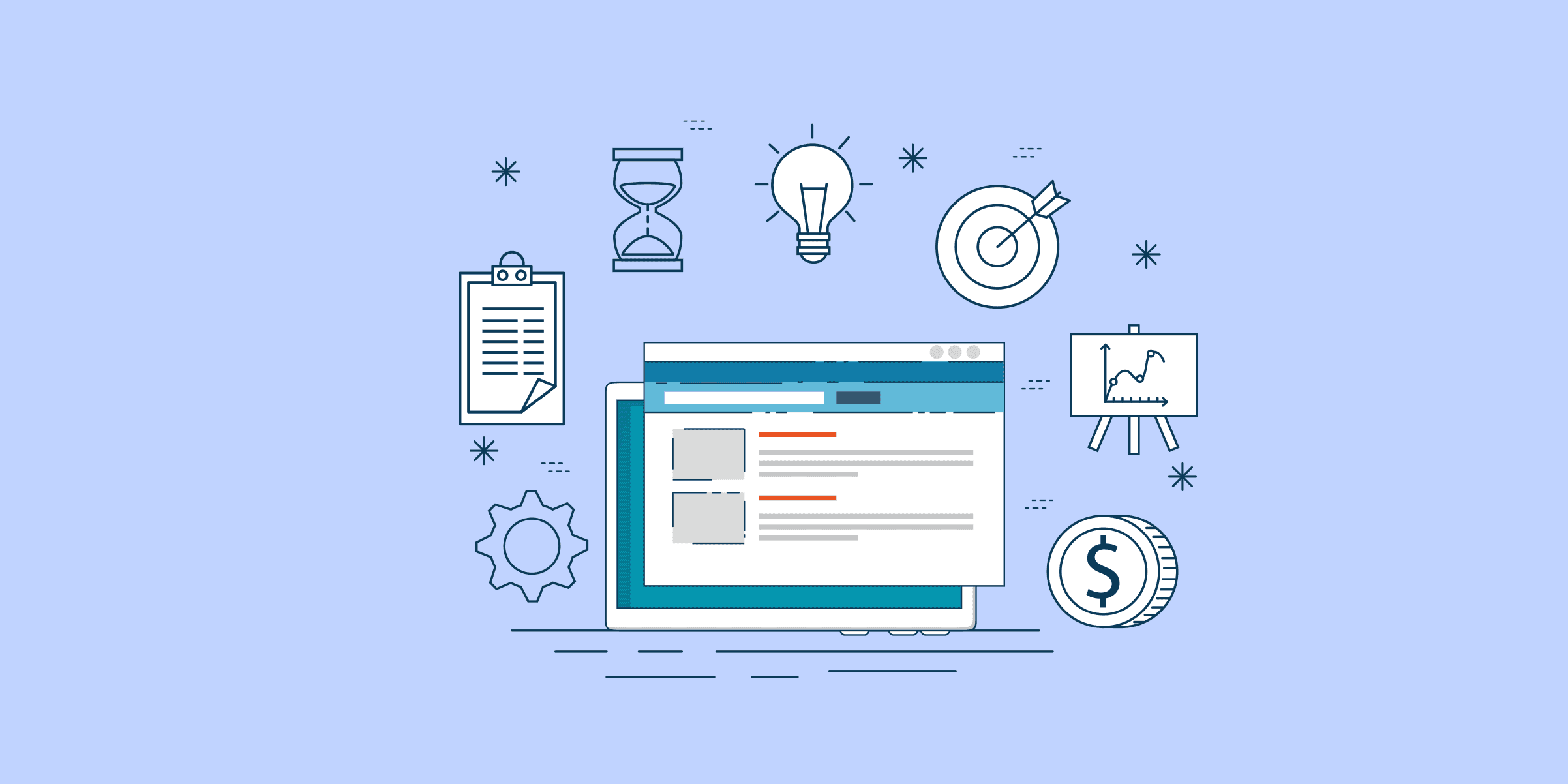
The Instagram Banning Controversy: Understanding the Social Media Crackdown
Instagram Banning: What You Need to Know and How to Adapt as an SEO ExpertIntroduction:Social media has become an integral part of our lives, with platforms like Instagram allowing individuals and businesses to connect, share ideas, and promote their products or services. However, recent updates indicate that Instagram is cracking down on certain behaviors and violations, which has led to various accounts and content being banned. In this blog post, we will explore the reasons behind Instagram banning, its impact on SEO, and how you can adapt your strategies to stay ahead.1. Understanding Instagram Banning:Instagram's ban policy is primarily designed to maintain a safe and positive environment for its users. Accounts and content can be banned for several reasons which include:a) Violation of Community Guidelines: This includes posting offensive, abusive, or explicit content, engaging in hate speech, promoting violence, or participating in spamming activities.b) Intellectual Property Infringement: Instagram takes copyright infringement seriously. Using someone else's copyrighted content without permission can lead to account suspension or content removal.c) Fake Engagement: Buying fake likes, followers, or comments violates Instagram's policies. The platform continuously detects and removes accounts that engage in such practices.d) Repeated Violations: Accounts that persistently violate Instagram's policies may face temporary or permanent bans, depending on the severity of the violations.2. Impact of Instagram Banning on SEO:Instagram plays a crucial role in promoting businesses and individuals online. The banning of accounts and content can impact SEO in the following ways:a) Reduction in Organic Reach: Banned accounts lose their visibility, resulting in a decrease in organic reach. This can negatively impact the visibility and engagement of your content.b) Loss of Backlinks: If your banned account had links to your website or blog, those backlinks will no longer be active. Loss of backlinks can affect your website's SEO performance.c) Disrupted Influencer Marketing: Influencer marketing heavily relies on Instagram for brand collaborations. When influencers get banned, it disrupts these partnerships, impacting brand exposure and reach.3. How to Adapt Your SEO Strategies:To mitigate the impact of Instagram banning on your SEO efforts, consider the following strategies:a) Diversify Your Social Media Presence: Relying solely on Instagram for your social media presence can be risky. Explore other popular platforms such as Facebook, Twitter, LinkedIn, and Pinterest to diversify your reach and engage with a broader audience.b) Focus on Quality Content Creation: Stay within the boundaries of Instagram's policies and create high-quality content that resonates with your target audience. By avoiding violations, you reduce the risk of being banned.c) Engage and Collaborate with Genuine Influencers: Instead of relying solely on banned accounts, connect with influencers who maintain a positive reputation and comply with Instagram guidelines. Collaborating with genuine influencers can help reach your target audience effectively.d) Optimize Your Website: With the potential loss of backlinks from banned Instagram accounts, it becomes crucial to optimize your website. Focus on improving your on-page SEO, creating valuable content, and building natural backlinks through guest posting or outreach.Conclusion:Instagram banning accounts and content is an effort to maintain a safe and positive platform for its users. As an SEO expert, it's essential to adapt and diversify your strategies to minimize the impact of such bans. By focusing on quality content creation, engaging with genuine influencers, and optimizing your website, you can overcome the challenges posed by Instagram banning and continue to thrive in the ever-evolving digital landscape.

The Integral Role of Proxies in Travel Fare Aggregation: Challenges and Solutions
Introduction In today's interconnected world, travel fare aggregators play a critical role in providing travelers with the best deals on flights and hotels. Gathering vast amounts of data from multiple sources, these aggregators rely on proxies to enable seamless data collection without interruption. This article will explore the importance of proxies in travel fare aggregation, how they function, and the challenges faced in this industry. Travel Fare Aggregation Explained Travel fare aggregation involves the process of web scraping, a method of collecting large volumes of data from multiple websites, including flight fares and hotel listings. Given the high-security measures of these websites, scraping without proxies may lead to IP bans and geo-restrictions. Aggregator sites for modern travel use proxy services to make the data collection process simpler and more efficient. These proxies assist in gathering information from various sources like airline websites, travel agencies, and more, compiling them to present the best available deals to users. How Can a Proxy Help with Travel Fare Aggregation? 1. Outdated InformationChallenge: Flight and hotel rates are ever-changing. Special offers, seasonal discounts, and other factors can cause constant fluctuations. Aggregators must stay up-to-date.Solution: Proxies enable real-time, continuous monitoring of various global sources, ensuring that the data collected is always current. This allows aggregators to present users with the latest offers and deals. 2. Website ComplexityChallenge: Websites employing dynamic JavaScript elements can be challenging to scrape. They monitor user behavior and block suspicious IP addresses.Solution: Proxies disguise scraper activity by distributing requests over different IPs, making it difficult for websites to detect unusual behavior. This facilitates smooth navigation and data extraction. 3. Location RestrictionsChallenge: Different regions may have different pricing. Some websites restrict access based on geographical location.Solution: By using global IP addresses, proxies bypass location restrictions, allowing accurate retrieval of localized pricing and offers.4. Reliable Real-Time DataChallenge: Gathering precise, large-scale information swiftly from global sources can become cumbersome.Solution: A stable proxy network ensures constant data flow with a high uptime rate, making worldwide travel cost aggregation accurate and efficient. 5. Successful ScrapingChallenge: Increased reliance on web crawling has led to advanced monitoring and blocking strategies.Solution: Proxies enable rapid IP switching, making it challenging for websites to differentiate between human and automated visitors, ensuring successful data scraping. 6. No Location LimitsChallenge: Accurate global data collection requires proxies in every continent and relevant country.Solution: Networks like LIKE.TG provide global reach, ensuring precise travel fare aggregation and universal access to airline and hotel websites. The Biggest Challenges of Travel Fare Aggregation 1. IP Address BansChallenge: Continuous scraping from the same IP can lead to bans.Solution: Rotating proxy networks change the IP address regularly, making it difficult for websites to block access. 2. Anti-Scraping MechanismsChallenge: Mechanisms like CAPTCHAs or rate-limiting can hinder scraping activities.Solution: Proxy networks, combined with automated anti-blocking measures, detect and overcome these challenges, allowing smooth and uninterrupted data extraction. 3. SecurityChallenge: Scraper's real identity and network might be exposed to potential threats.Solution: Proxies act as a shield, hiding the user's real IP and providing an additional security layer against malicious attacks or data breaches. Conclusion Travel fare aggregation has become a critical component in the travel industry, allowing users to find the best deals and offers. The use of proxies ensures that aggregators can efficiently gather the necessary data from different sources without concerns of geo-restrictions, IP bans, or other restrictions. By employing effective practices and tools, including global proxy networks, travel fare aggregators ensure uninterrupted access to online data sources, regardless of location or other barriers set up by accommodation and airfare providers. Through constant innovation and the adoption of robust proxy networks, travel fare aggregation continues to evolve, offering travelers unprecedented access to the most competitive deals, no matter where they are in the world.

The Intersection of Social Media Marketing and Proxy Servers: Strategies and Challenges
The world of social media marketing is ever-evolving, presenting businesses with unique opportunities and challenges. One crucial aspect that has gained prominence is the use of proxy servers. These servers play a pivotal role in refining and enhancing social media strategies. This article explores how proxies aid in market research, manage multiple accounts, overcome algorithmic challenges, target specific audiences, and analyze data effectively, while also addressing the challenges and ethical considerations associated with their use. Role of Proxies in Social Media Marketing In the dynamic realm of social media marketing, proxy servers emerge as a game-changing tool for savvy marketers. Their role extends far beyond mere anonymity; they serve as a strategic asset in the intricate dance of digital marketing. Here's a deeper dive into the multifaceted roles of proxies in social media marketing: 1. Market Research and Competitive Analysis: - Anonymity for Authentic Data Gathering: Proxies allow marketers to conduct market research incognito. This anonymity is crucial in avoiding skewed data that can result from platforms recognizing a business's intent. By browsing under the radar, proxies enable the collection of genuine, unbiased insights about market trends, competitor strategies, and customer preferences. This level of stealth is essential in crafting strategies that are responsive to the actual market climate rather than based on skewed or manipulated data. - Competitor Analysis: Proxies also empower marketers to conduct a thorough analysis of their competitors without alerting them. By browsing anonymously, they can monitor competitors’ social media activity, marketing strategies, customer interactions, and even ad placements. This intelligence is pivotal in developing counterstrategies and staying ahead in the competitive landscape. 2. Management of Multiple Accounts: - Circumventing Platform Limitations: Many social media platforms have restrictions on the number of accounts operated from a single IP address. Proxies provide a solution by allowing businesses to manage multiple accounts from the same device. This is particularly useful for large-scale marketing campaigns or managing accounts across different regions. - Enhanced Engagement and Reach: By operating multiple accounts seamlessly, businesses can engage with a broader audience, create diverse content strategies, and amplify their brand presence. Each account can cater to different segments of the target market, thereby maximizing reach and engagement. Overcoming Algorithmic Challenges Social media algorithms are the invisible gatekeepers that dictate content visibility and reach. Understanding and navigating these algorithms is crucial for any successful social media campaign. Proxies offer a unique advantage in this regard: 1. Decoding Algorithms for Broader Reach: - Simulating Various Demographics: Proxies enable marketers to test how content performs across different demographics and locations. By simulating access from various regions, they can gauge how the algorithm prioritizes and presents content to different user groups. - Strategy Testing and Optimization: Armed with this knowledge, marketers can tweak their strategies to align with the algorithm’s preferences. This might include adjusting posting times, content formats, or even the nuances of language and cultural references to increase engagement and visibility. 2. Leveraging Regional Insights: - Understanding Regional Preferences: By using proxies, marketers can uncover regional trends and preferences, allowing them to tailor content that resonates more strongly with specific audiences. This regional targeting can significantly boost the relevance and impact of social media campaigns. - A/B Testing Across Regions: Proxies also facilitate A/B testing in different regions, providing valuable insights into what works best in each area. This approach helps in fine-tuning content and strategies for maximum effectiveness. In summary, the integration of proxy servers in social media marketing opens up a world of possibilities for businesses. From conducting undercover market research and running multiple accounts to unraveling the complexities of social media algorithms for enhanced content visibility, proxies are a powerful tool in the arsenal of modern digital marketers. As the digital landscape continues to evolve, the strategic use of proxies will undoubtedly become more integral to the success of social media marketing efforts. Proxies for Audience Targeting and Analytics Enhancing Audience Targeting Precision: - Regional Proxies for Market Penetration: The use of regional proxies is a strategic maneuver for businesses aiming to penetrate new markets. These proxies enable marketers to present themselves as users from specific geographic locations, offering a unique vantage point to understand the local audience. This insight is crucial when tailoring marketing campaigns for new regions, ensuring that content is culturally relevant, engaging, and resonant with local norms and preferences. - Customized Content for Targeted Regions: By understanding regional nuances, businesses can customize their social media content, making it more appealing to the target demographic. This strategy increases the likelihood of higher engagement rates, stronger brand loyalty, and ultimately, a more successful market entry. Gleaning Precise Analytics: - Comprehensive Demographic Insights: Utilizing proxies to access social media platforms from various demographic perspectives offers marketers a broader and more detailed understanding of audience behavior. This data-driven approach allows for the analysis of how different groups engage with content, react to marketing messages, and perceive the brand. - Data-Driven Strategy Refinement: Armed with this information, businesses can refine their marketing strategies to ensure they are hitting the mark with their intended audience. This might involve tweaking campaign messages, adjusting content delivery formats, or even rethinking the overall brand positioning to better align with the target demographic's preferences and expectations. Challenges and Ethical Considerations Navigating Risks and Ensuring Security: - Assessing Proxy Server Reliability: A primary concern when using proxies in social media marketing is the reliability and security of the proxy servers themselves. Businesses must diligently assess the quality of proxy services to ensure they don't jeopardize data integrity or expose sensitive information. Opting for reputable, high-quality proxy providers is crucial to mitigate these risks. - Data Privacy and Integrity: The potential for compromised data privacy when using low-quality or free proxies is significant. Marketers must prioritize protecting both their own and their audience's data, avoiding any practices that could lead to data breaches or privacy infringements. Ethical and Legal Compliance: - Adhering to Platform Terms of Service: The use of proxies must be in line with the terms of service of social media platforms. Misusing proxies to manipulate engagement or access unauthorized data can lead to account suspension or legal consequences. Marketers must remain aware of these boundaries and operate within the ethical confines of digital marketing. - Balancing Effectiveness with Ethical Practices: While proxies offer significant advantages in audience targeting and analytics, marketers need to balance these benefits with ethical considerations. This includes respecting user privacy, avoiding deceptive practices, and ensuring that their marketing strategies contribute positively to the digital ecosystem. While proxies offer a range of strategic benefits in audience targeting and analytics for social media marketing, they must be used with careful consideration of security, reliability, and ethical standards. Navigating these challenges successfully requires a blend of technological savvy, strategic thinking, and a firm commitment to ethical marketing practices. As the digital landscape continues to evolve, the role of proxies in social media marketing will undoubtedly become more nuanced, demanding a more sophisticated and responsible approach from marketers. Conclusion In conclusion, proxy servers offer strategic advantages in social media marketing, from enhancing market research and managing multiple accounts to overcoming algorithmic barriers and improving audience targeting. As the digital marketing landscape continues to evolve, proxies will likely play an increasingly significant role. However, it is crucial for marketers to balance these advantages with the inherent challenges and ethical considerations, ensuring that their use of proxies adds value and integrity to their social media marketing efforts.

The Intersection of Travel and Proxy Technology: LIKE.TG's Comprehensive Solutions
Introduction In today's interconnected world, the travel industry depends heavily on data intelligence to stay ahead of competition. LIKE.TG Proxy Service has become a central figure in providing cutting-edge proxy technology to cater to the travel industry's data needs. With over 90 million real, clean, anonymous residential proxy IPs covering more than 220 regions worldwide, LIKE.TG is redefining how the industry approaches data. Travel Data Intelligence with LIKE.TG 1. Global Reach LIKE.TG offers a robust network of over 90 million IPs spanning 220+ regions worldwide. This vast reach allows the travel industry to connect to international data sources, fetching real-time information across various countries and cities. The residential proxies support multiple protocols, including HTTP(S) and SOCKS5, providing both flexibility and security. From checking flight availability to obtaining localized travel advisories, LIKE.TG's global reach offers a seamless connection to the world. 2. Versatile Proxy Solutions Understanding the dynamic needs of the travel industry, LIKE.TG provides both rotating and static residential proxies. These can be accessed via API or User+Pass Auth from web pages, offering diverse options for data retrieval. Rotating proxies offer anonymity, while static proxies provide stability, catering to various data collection needs. Whether it's scanning for the best hotel deals or analyzing travel trends, these versatile solutions offer efficiency and adaptability. 3. Powerful Proxy Software The travel industry often requires quick and efficient data management. LIKE.TG's Proxy Manager is designed to simplify the configuration of global SOCKS5 residential proxies. With an intuitive interface, users can effortlessly adjust settings, monitor performance, and ensure optimal data collection. In a rapidly evolving travel market, this powerful software acts as a critical tool, aligning with the industry's need for speed and precision. 4. Targeted Data Access Personalization and relevance are key in the travel sector. With LIKE.TG's city and ASN-level targeting capabilities, travel companies can pinpoint data that aligns with specific markets and demographics. Whether it's understanding local preferences for a tailored travel package or monitoring region-specific competition, this targeted access allows for more strategic and informed decision-making. 5. Unlimited Access LIKE.TG understands the 24/7 nature of the travel industry, offering unmetered bandwidth and unlimited concurrent sessions. This ensures that travel-related businesses can operate without any bottlenecks or constraints. Be it holiday seasons or last-minute bookings, LIKE.TG's unlimited access ensures uninterrupted service and responsiveness. Applications of LIKE.TG in the Travel Industry A. Fare Aggregation and Price Integration Travel agencies and fare aggregators rely on LIKE.TG to access and analyze global fare data quickly. Its broad reach and real-time capabilities enable the collection of comprehensive pricing information, ensuring competitive offerings. By leveraging LIKE.TG, businesses can offer travelers the best deals, keeping up with fluctuating market rates and competitor pricing. B. Brand Protection and Ad Verification In the highly competitive travel industry, brand reputation is paramount. LIKE.TG's proxies enable companies to monitor and protect their brand image online. Additionally, they can verify that advertising content reaches the intended audience without misrepresentation or fraud, ensuring both credibility and effective marketing strategies. C. SEO and Social Media Management LIKE.TG's solutions aid travel companies in optimizing their search engine rankings and managing extensive social media campaigns. With precise analytics and data-driven insights, businesses can tailor their online presence to reach a broader audience. This enhancement in visibility translates to increased bookings, reviews, and customer engagement. D. E-Commerce in Travel E-commerce platforms specializing in travel products and services benefit greatly from LIKE.TG. From automated price comparisons to customer behavior analysis, LIKE.TG's proxies enable a rich shopping experience. Whether it's offering personalized travel accessories or exclusive vacation packages, these data-driven insights elevate the entire e-commerce journey, leading to satisfied customers and increased sales. Conclusion LIKE.TG Proxy Service has positioned itself as a critical player in the travel industry by providing a suite of proxy solutions tailored to various needs. From fare aggregation to brand protection, LIKE.TG's offerings enhance the ability of travel companies to collect, analyze, and use data effectively. Its vast network, sophisticated software, and targeted solutions make it a preferred choice for travel businesses seeking to innovate and excel in an increasingly data-driven world.

The IP Address You Are Using Has Been Flagged as an Open Proxy: What Does it Mean and How to Protect Yourself
The IP Address You Are Using Has Been Flagged as an Open ProxyIn today's digital world, our online activities are becoming increasingly susceptible to security threats. One such threat is the use of open proxies. If you have come across the message "The IP Address You Are Using Has Been Flagged as an Open Proxy," it is crucial to understand what it means and how it can impact your online safety.An open proxy is a server that acts as an intermediary between your device and the internet. Instead of directly connecting to a website or online service, your internet traffic is routed through this proxy server. While proxies can be used for various purposes, such as accessing geographically restricted content or enhancing privacy, open proxies can be a major security concern.When an IP address is flagged as an open proxy, it means that it has been identified as a server that allows anyone to use it as a proxy, without authentication. This puts your online activities at risk because open proxies can be exploited by cybercriminals to hide their identity, launch attacks, or engage in malicious activities without getting traced back to them.Here are a few reasons why the use of open proxies can be dangerous:1. Data Breach: When your internet traffic passes through an open proxy, it becomes vulnerable to interception. Cybercriminals can monitor and capture your sensitive information, such as login credentials, credit card details, or personal data.2. Malware Injection: Open proxies can inject malware into your internet traffic. This malware can infect your device, compromising your data, and allowing hackers to gain unauthorized access.3. Identity Theft: By using open proxies, cybercriminals can mask their IP address, making it difficult to track them. This anonymity allows them to engage in identity theft or fraudulent activities without leaving a trace.4. Reputation Damage: If your IP address is flagged as an open proxy, it can lead to a negative impact on your online reputation. Websites and online services may block or restrict your access, impacting your ability to browse or conduct business online.To protect yourself from the risks associated with open proxies, here are some recommended steps:1. Regularly Update Software: Keep your operating system, antivirus, and other software up to date. This helps in patching any vulnerabilities that could be exploited by cybercriminals.2. Be Wary of Unknown Proxies: Avoid using open proxies unless you trust the source. Use trusted and verified proxies, especially when accessing sensitive information or conducting financial transactions.3. Enable Firewall: Enable your device's firewall to block unauthorized access and filter out suspicious internet traffic.4. Educate Yourself: Stay informed about the latest online security threats and best practices. Regularly read trusted blogs and articles to stay updated on the evolving landscape of online security.In conclusion, being flagged as an open proxy is a serious security concern that can expose your online activities to potential risks. By understanding the dangers of open proxies and taking the necessary precautions, you can protect yourself from cyber threats and enjoy a safer online experience. Remember, your online safety is in your hands, so make informed decisions and stay vigilant.

The IP Address You are Using Has Been Flagged as an Open Proxy: What You Need to Know
Title: Understanding the Implications of an IP Address Flagged as an Open ProxyIntroduction:In today's technologically advanced world, the internet plays an integral role in our personal and professional lives. However, it also brings with it various risks and vulnerabilities, such as the issue of open proxies. This blog aims to shed light on the importance of IP addresses and the consequences of being flagged as an open proxy.1. What is an IP Address?An IP address is a unique numerical label assigned to each device connected to a computer network. It serves as an identifier, allowing devices to communicate with each other. IP addresses come in two versions: IP version 4 (IPv4) and IP version 6 (IPv6).2. Understanding ProxiesProxies act as intermediaries between a user and the server they are trying to access. They allow users to maintain anonymity and bypass certain network restrictions. However, open proxies can be exploited for illicit activities such as hacking, spamming, or spreading malware. When an IP address is flagged as an open proxy, it indicates that it has been identified as being misused or potentially compromised.3. The Consequences of Being Flagged as an Open ProxyIf your IP address is flagged as an open proxy, it can have several negative implications:a) Reduced Online Accessibility: Many websites and online services may block or restrict access to users with flagged IP addresses. This can severely impact your ability to access essential websites, such as banking or educational platforms.b) Blacklisting: Being flagged as an open proxy can lead to your IP address being blacklisted by various security services. This could result in your emails being marked as spam, your website being temporarily or permanently blocked, or even being banned from certain online communities.c) Legal Issues: If your IP address has been flagged as an open proxy due to illegal activities performed by someone using your network, you may face legal consequences. It is crucial to maintain the security of your network and report any suspicious activities to your internet service provider promptly.4. Steps to Protect Your IP AddressTo avoid being flagged as an open proxy, consider the following preventive measures:a) Secure Your Network: Implement robust security measures such as firewalls and anti-malware software to protect your network from unauthorized access.b) Regularly Update Software: Keep your operating system, web browsers, and other software up to date to patch any known vulnerabilities that could be exploited.c) Monitor Network Traffic: Regularly monitor your network for suspicious activities or unusual traffic patterns. Use network monitoring tools to detect any potential issues.d) Report Suspicious Activities: If you notice any unusual activities or suspect that your IP address has been compromised, inform your internet service provider immediately.Conclusion:IP addresses are essential components of our online experience. However, being flagged as an open proxy can have severe consequences, such as restricted access, blacklisting, and legal issues. By implementing proper security measures and promptly reporting any suspicious activities, you can protect your IP address and avoid becoming a target for malicious activities. Stay vigilant and safeguard your online presence.

The Key Differences Between Puppeteer and Selenium: A Comprehensive Comparison
Introduction:When it comes to web automation testing, two popular tools that often come up in discussions are Puppeteer and Selenium. Both tools are widely used for automating browser tasks, but they have some key differences that set them apart. In this blog post, we will explore the differences between Puppeteer and Selenium to help you understand which tool may be more suitable for your needs.Puppeteer:Puppeteer is a Node.js library developed by Google that provides a high-level API for controlling headless Chrome or Chromium over the DevTools Protocol. It is known for its ease of use and powerful capabilities for automating tasks such as form submission, UI testing, and screen scraping. Puppeteer's API is simple and intuitive, making it a popular choice for developers who prefer JavaScript.Selenium:Selenium is an open-source automation tool that supports various programming languages such as Java, Python, and C#. It consists of a suite of tools that can be used for testing web applications across different browsers and platforms. Selenium WebDriver, in particular, is widely used for automating web browsers and performing tasks like clicking buttons, filling forms, and navigating through web pages.How to choose between Puppeteer and Selenium?1. Technology Stack:One of the primary differences between Puppeteer and Selenium lies in their underlying technology stack. Puppeteer is a Node.js library developed by Google that provides a high-level API to control Chrome or Chromium over the DevTools Protocol. On the other hand, Selenium is a suite of tools that includes Selenium WebDriver, which interacts with browsers via browser-specific drivers.2. Browser Support:Puppeteer is specifically designed to work with Chrome and Chromium browsers. It provides a seamless experience for automating tasks in these browsers. In contrast, Selenium supports a wider range of browsers, including Chrome, Firefox, Safari, Internet Explorer, and Microsoft Edge. If cross-browser testing is a priority for your automation needs, Selenium may be the better choice.3. Performance:In terms of performance, Puppeteer is known for its speed and efficiency. Since it communicates directly with the Chrome browser, Puppeteer can execute tasks quickly and with low overhead. Selenium, on the other hand, relies on browser-specific drivers, which can introduce some additional latency. If speed is a critical factor for your automation tasks, Puppeteer may offer better performance.4. Ease of Use:Puppeteer is often praised for its simple and intuitive API, making it easy for developers to get started with browser automation. Its documentation is clear and comprehensive, which can reduce the learning curve for new users. Selenium, while powerful, can be more complex to set up and configure due to its dependence on browser drivers and a more extensive toolset.5. Ecosystem and Community:Both Puppeteer and Selenium have active communities and extensive documentation to support users. However, Puppeteer being a newer tool, may have a smaller ecosystem compared to Selenium. Selenium has been around for longer and has a larger user base, leading to more resources, tutorials, and community support.Conclusion:In conclusion, the choice between Puppeteer and Selenium depends on your specific requirements and preferences. If you prioritize speed, simplicity, and Chrome-specific testing, Puppeteer may be the ideal choice. On the other hand, if cross-browser compatibility and a more established ecosystem are important to you, Selenium could be the better option. Ultimately, both tools have their strengths and can be valuable assets in a web automation testing toolk

The Meaning and Importance of HTTP Proxy in Networking
What does HTTP proxy mean?In the ever-expanding world of technology and the Internet, there are many terms and concepts that can be difficult to understand. One such term is HTTP Proxy. In this blog post, we will explore the meaning of HTTP Proxy and its importance in the online world.Let's start by breaking down the term. HTTP stands for HyperText Transfer Protocol, which is the protocol used to transfer hypertext over the Internet. It is the basis of all data exchange on the World Wide Web. A proxy, on the other hand, acts as an intermediary between devices, allowing them to communicate with each other. It acts as a gateway between the user and the Internet, relaying requests and responses.So what is an HTTP proxy? An HTTP proxy is a server that sits between a client device, such as a computer or smartphone, and the web server it wants to access. It acts as an intermediary, passing requests and responses between the client and the server. When a user accesses a website through an HTTP proxy, their request is first sent to the proxy server. The proxy server then forwards the request to the website and returns the response to the user.One of the main reasons for using an HTTP proxy is to increase security and privacy. By acting as an intermediary, the proxy server can hide the user's IP address and identity from the website they are visiting. This makes it more difficult for websites to track and trace user activity. In addition, an HTTP proxy can be used to filter content, blocking access to certain websites or types of content.Another benefit of HTTP proxies is their ability to improve performance. By caching frequently accessed web pages, proxies can reduce the amount of data that needs to be transferred between the client and the server. This can result in faster load times, especially for users in remote locations or with slower Internet connections.There are several types of HTTP proxies, each with their own features and use cases. The most common types are forward proxies and reverse proxies. Forward proxies are typically used by client devices to access the Internet, while reverse proxies are used by web servers to handle incoming requests.In summary, an HTTP proxy is a server that acts as an intermediary between a client device and the web server it wishes to access. It improves security and privacy by hiding the user's identity and can improve performance by caching web pages. Understanding the importance and functionality of HTTP proxies is essential in today's digital age. Whether it's for security, privacy or performance optimisation, HTTP proxies play a crucial role in ensuring a seamless and safe online experience.

The Necessity of Dynamic IP Rotation in Proxy Management
In the world of IP proxy services, dynamic IP rotation stands as a cornerstone technology that enhances anonymity, reduces the risk of blacklisting, and ensures efficient data access. This blog post explores why continuous dynamic rotation is crucial in proxy management, detailing its benefits and implications for various online activities.Understanding Dynamic IP RotationDynamic IP rotation is a process where the IP address assigned to a user or a task changes automatically after a set period or after every request. This technique is employed by proxy servers to allocate a different IP address from their pool, ensuring that no single IP address is overused.Key Benefits of Dynamic IP Rotation1. Enhanced Anonymity and Security: The primary advantage of dynamic IP rotation is the enhanced anonymity it provides. By frequently changing the IP address, it becomes significantly more difficult for websites, services, or cyber attackers to track user activity or pinpoint their actual location. This not only protects users’ privacy but also secures sensitive information from potential interception.2. Avoidance of Rate Limits and IP Bans: Many websites impose rate limits or ban IP addresses that exhibit unusual behavior, such as excessive requests within a short timeframe, which are often associated with web scraping or automated queries. Dynamic IP rotation mitigates this risk by spreading the requests across multiple IPs, thereby diluting the footprint and avoiding detection by anti-scraping technologies.3. Improved Access to Geo-restricted Content: Dynamic rotation allows users to access content from multiple geographical locations without needing to manually switch between proxies. This is particularly useful for businesses that need to test ads or access services across different regions, as well as for individuals who wish to bypass geo-restrictions imposed by streaming or news services.4. Increased Success Rates in Data Scraping: For data scraping, having a dynamic set of IP addresses can dramatically increase the success rate of data extraction efforts. Rotating IPs can prevent the scraper from being blocked, especially when dealing with websites that have strong anti-bot measures.5. Load Balancing: Using dynamic IP rotation helps in balancing the load among several servers. This can prevent any single proxy server from being overloaded with requests, which can degrade performance and increase the risk of server failures.Practical Scenarios Where Dynamic IP Rotation is Essential1. Competitive Intelligence: Businesses gathering competitive intelligence need to operate without exposing their corporate network. Dynamic IP rotation enables them to stealthily collect necessary data, ensuring that their market research activities remain confidential and effective.2. SEO and Digital Marketing: SEO professionals and digital marketers often rely on proxies to simulate searches from different locations to check search engine rankings or verify ads. Dynamic IP rotation is critical here to mimic genuine user behavior across diverse locations.3. Cybersecurity Measures: In cybersecurity, testing how a network responds to threats from different IP addresses can help in strengthening defenses. Dynamic rotation facilitates this process by simulating a broad range of attack scenarios.In conclusion, dynamic IP rotation is not just a feature of proxy services but a fundamental mechanism that addresses multiple challenges in managing online interactions. By continuously changing IP addresses, businesses and individuals can enhance their operational security, achieve high-efficiency data access, and maintain compliance with legal and ethical standards. This technology remains indispensable in navigating the complex landscape of the internet today.

The Perfect Pair: A Sneak Peek Into the World of Sneakers
A Pair of Sneakers: An Ode to Comfort and StyleDescription: In this blog post, we will explore the magic of sneakers and how they have seamlessly integrated comfort and style. From their humble beginnings as sports shoes to becoming a fashion staple, sneakers have come a long way, and we will delve into their journey. Join us as we celebrate the versatility, practicality, and undeniable charm of a pair of sneakers.Introduction:A pair of sneakers; an unassuming yet essential element of our daily lives. These humble shoes have transcended their functional purpose and become symbols of comfort, style, and self-expression. Whether it's walking, running, or simply navigating our way through life, sneakers have become our trusted companions. In this blog post, we will dive into the fascinating journey of sneakers, exploring their origins, their evolution as a fashion statement, and the reasons why they continue to captivate our hearts and feet.Origins and Evolution:The history of sneakers dates back to the early 19th century when rubber soles were first developed. However, it was not until the late 19th century that sneakers, then known as "plimsolls," were mass-produced for sports activities. These rudimentary shoes provided athletes with enhanced grip and comfort, marking the beginning of the sneaker revolution.Fast forward to the mid-20th century, when sneakers became synonymous with street culture and rebellious youth. With the emergence of basketball and tennis, brands like Converse and Adidas introduced iconic designs that captured the imagination of a generation. Sneakers transformed from functional footwear to fashion statements, gaining popularity among both athletes and style-conscious individuals.Versatility and Practicality:One of the key reasons behind the enduring appeal of sneakers is their versatility and practicality. Their fusion of comfort and style makes them suitable for a wide range of activities and occasions. From casual outings to athletic pursuits, sneakers seamlessly transition from day to night, allowing us to effortlessly navigate our busy lives.The invention of specialized technologies, such as Nike's Air cushioning or Adidas' Boost, has further enhanced the comfort and performance of sneakers. These innovations have revolutionized the athletic footwear industry, ensuring that we not only look good but also feel good while wearing our favorite pairs.Fashion Statement:Sneakers have become an integral element of contemporary fashion, transcending age, gender, and social boundaries. They effortlessly bridge the gap between casual and formal attire, allowing us to express our personal style in unique and unexpected ways. The rise of sneaker culture and the proliferation of limited-edition collaborations have turned sneakers into highly coveted fashion items.Celebrities, influencers, and fashion icons have played a significant role in popularizing sneakers as a fashion statement. From the classic Converse Chuck Taylors to the modern Yeezy Boosts, these shoes have graced red carpets, magazine covers, and social media feeds, becoming a symbol of coolness and individuality.Conclusion:A pair of sneakers is much more than just footwear; it's a form of self-expression, comfort, and style. From their modest beginnings on sports fields to their current status as fashion icons, sneakers have left an indelible mark on our culture. Their versatility, practicality, and unwavering charm have made them an essential part of our lives.So, the next time you slip on a pair of sneakers, take a moment to appreciate their humble origins and the incredible journey they have undertaken. Whether you're hitting the gym, exploring the city, or simply seeking comfort and style, a pair of sneakers will always have your back, or rather, your feet.

The Perils of Free Proxies: What You Need to Know
In today's digital age, proxy servers have become indispensable tools for many users engaging in activities like safeguarding their privacy, accessing restricted websites, and performing data collection on the Internet. While there is a plethora of proxy service providers to choose from, free proxies often appear as an enticing option. However, beneath their surface allure, free proxies harbor a multitude of hazards and risks. This article delves into the perils of free proxies, offering an in-depth analysis of why opting for free proxy services may not be the wisest choice. First, Who Should Steer Clear of Free Proxies? Although free proxies hold a certain allure, they are not suitable for all types of businesses. Here are some scenarios in which you should avoid choosing a free proxy: 1. Business Operations: If your business necessitates a stable, secure, and reliable network connection, free proxies may not be the most prudent choice. Business use typically requires top-notch proxy services to ensure data security, stability, and the seamless operation of the enterprise. 2. Large-Scale Data Collection: When embarking on large-scale data collection tasks, free proxies often fall short in providing adequate concurrent connections and stability. This can result in inefficient data collection or task interruptions. 3. Sensitive Data Access: Businesses that deal with sensitive information or engage in financial transactions may face security risks when using free proxies. These proxies generally lack stringent privacy protection measures, potentially leading to information leakage or tampering. 4. High-Speed and Low-Latency Demands: Free proxies typically exhibit slower speeds and higher latency, rendering them unsuitable for businesses requiring swift response times and low latency, such as real-time video streaming and online gaming. 5. Long-Term Stability Requirements: Free proxies are often bereft of long-term stability, frequently changing IP addresses or discontinuing service. This makes them ill-suited for businesses necessitating sustained proxy stability. 6. High Traffic Demand: Free proxies frequently impose restrictions on traffic usage or the number of concurrent connections, rendering them inadequate for businesses with substantial traffic requirements. 7. Technical Support Needs: Free proxies generally do not provide professional technical support. In the event of issues during proxy setup or usage, users may struggle to obtain timely assistance and solutions. Second, Unpacking the Specific Hazards of Free Proxies. 1. Security RisksFree proxies often carry grave security risks. Lacking a stable source of income, these proxies may resort to less reliable means to offset server maintenance costs, such as injecting malicious advertisements, monitoring user data, and surreptitiously collecting user information. These malicious practices pose a threat to user privacy and can result in dire consequences like identity information leakage and account theft. 2. InstabilityFree proxies typically lack the resources required to maintain a stable service. Due to the large volume of free proxy users, proxy servers may frequently become overwhelmed, leading to unstable connections that disrupt users' normal online activities. This proves detrimental to users relying on proxies for data collection, accessing restricted websites, or other online tasks, potentially causing task failures or data inaccuracies. 3. Slow SpeedOwing to the substantial user base of free proxies, bandwidth and connection speeds tend to be sluggish. Consequently, users often encounter prolonged load times when visiting websites, conducting data transfers, or streaming content. Free proxies fall short of meeting the efficiency requirements for users needing a swift internet connection. 4. Risk of Being BlockedBecause the IP address of a free proxy is generally shared by numerous users, it becomes easily identifiable as a proxy IP by websites and may consequently be blocked. This means that users may be unable to access specific websites or services, thereby impeding work efficiency and user experience. 5. Lack of Technical SupportFree proxy services are frequently devoid of professional technical support. When users encounter problems or require assistance during proxy setup and usage, procuring prompt and effective support proves challenging. This can lead to difficulties in addressing issues when using free proxies. 6. Data Leakage RiskFree proxies often lack robust privacy policies and data protection measures. Consequently, users' data may be inappropriately used or leaked to third parties, posing a threat to personal privacy. In sum, while free proxies may appear enticing on the surface, they conceal numerous hazards and risks. Lacking a stable source of revenue, free proxy services struggle to furnish stable, high-speed, and secure internet connections. Users opting for free proxies may encounter risks like personal privacy breaches, account theft, data inaccuracies, as well as issues such as an unstable network connection, slow speeds, and website blockages. To protect personal privacy and ensure an efficient internet connection, users are encouraged to select trusted and reputable paid proxy services. While paid proxies may entail a certain cost, they deliver greater reliability and are preferred in terms of security, stability, and user experience.

The Power Dynamics of Price Discrimination in Ecommerce: Producers vs Consumers
Introduction Price discrimination, or charging different prices to different consumers for the same product, has become an increasingly common strategy in ecommerce. On the one side, ecommerce producers are leveraging new technologies and consumer data to segment customers and charge variable prices. On the other side, consumer advocates argue this practice is unethical and limits consumer power. This article will analyze the complex power dynamics between producers and consumers in the context of price discrimination in ecommerce. What is Price Discrimination? Price discrimination refers to the practice of selling the same product to different consumers at different prices, even though the cost of production is the same. It aims to capture maximum consumer surplus from each customer segment. There are three degrees of price discrimination: First Degree: Charging the maximum price each customer is willing to pay. This requires precise knowledge of each buyer's willingness to pay. Second Degree: Charging different prices based on quantity purchased. For example, bulk discounts. Third Degree: Segmenting consumers into different groups based on characteristics and charging each group a different price. For example, student discounts. In ecommerce, third degree price discrimination is most common. Online retailers can easily segment consumers based on data such as past purchases, browsing history, location, platform, etc. Producer Power in Ecommerce The rise of ecommerce has increased producer power in several ways: - Increased market reach - sellers can access consumers globally, reducing competition - Reduced search costs - consumers have less incentive to compare prices at different sellers - Consumer data - detailed data on consumers allows personalized marketing and pricing - Lack of transparency - consumers may not be aware they are being offered different prices These factors allow producers to segment the market and price discriminate without fear of consumer backlash. Researchers have found instances of ecommerce sites changing prices based on factors like user operating system and location. Some examples of price discrimination in ecommerce: - Some brand showed higher priced hotels to Mac users - Multiple sites have shown regional pricing based on user location - Some retailers have targeted loyal customers with higher prices Consumer Power Challenges Consumer advocates argue that price discrimination in ecommerce creates an unfair power imbalance and limits consumer power. Some challenges to consumer power include: - Information asymmetry - consumers lack full transparency into dynamic pricing - Switching costs - once consumers establish loyalty, they are less price sensitive - Lack of competitive choices - only a handful of big retailers dominate most categories - Behavioral biases - things like sales framing can influence consumer decisions - Privacy concerns - data collection required for price discrimination raises ethical issues Because of these factors, it can be difficult for consumers to "vote with their wallet" or exert power over producers. This further tilts the balance of power in favor of producers. Consumer Strategies Against Price Discrimination Nonetheless, consumers are not powerless. Some strategies shoppers can use include: - Clearing cookies/using private browsing - don't let sites track you - Using VPNs or proxy services LIKE.TG- mask your location - Comparing prices in multiple sessions - detect personalized pricing - Avoiding account logins - shop anonymously - Patronizing smaller retailers - avoid dominant ecommerce giants These techniques require some effort from consumers but can mitigate the effects of price discrimination. The Future Landscape It remains to be seen how increased backlash against big tech will influence price discrimination going forward. Some possible scenarios: - Increased regulation - policies limiting data collection or dynamic pricing - Transparency requirements - forcing retailers to disclose pricing practices - Consumer activism - shopper demands for fairness may discourage discrimination - Retailer ethics - some brands may avoid discrimination for competitive advantage The balance of power between producers and consumers continues to evolve in the world of ecommerce. While producers currently hold more cards, consumer power remains a force to be reckoned with. Conclusion Price discrimination allows ecommerce producers to maximize profits, but raises ethical issues around fairness and transparency. Producers have used data and technology to gain pricing power, but face limitations from consumer advocacy. The future landscape will depend on regulation, corporate ethics, and shopper activism. The complex dynamics between producers and consumers will continue to shape the use of price discrimination in ecommerce.

The Power of ADSPower Browser: Unlocking the Full Potential of Your Browsing Experience
Title: Boost Your Online Experience with Adspower BrowserIntroduction:In today's digital age, browsing the internet has become an integral part of our daily lives. Whether for work or leisure, having a fast and reliable browser is essential. This is where Adspower Browser comes in. In this blog post, we will explore the key features and benefits of Adspower Browser and how it can enhance your online experience.1. Speed and Performance:When it comes to browsing, speed is paramount. Adspower Browser is known for its lightning-fast performance, allowing you to surf the web and access websites quickly and efficiently. With its optimized coding and advanced rendering engine, Adspower Browser ensures that web pages load swiftly, saving you valuable time and frustration.2. Enhanced Privacy and Security:In today's era of online threats and cybercrime, protecting your privacy and ensuring a secure online experience is more important than ever. Adspower Browser goes the extra mile to safeguard your personal data by offering a built-in ad blocker, pop-up blocker, and anti-tracking features. These features not only enhance your browsing experience by eliminating annoying ads and pop-ups but also protect you from potentially dangerous websites and malicious trackers.3. User-Friendly Interface:Adspower Browser boasts a user-friendly interface that is intuitive and easy to navigate. Whether you are a tech-savvy user or a beginner, you will find Adspower Browser's interface simple and straightforward. It offers a customizable homepage, allowing you to personalize your browsing experience according to your preferences.4. Extensions and Add-ons:Customization is key when it comes to browsers, and Adspower Browser supports a wide range of extensions and add-ons. These can include productivity tools, language translators, online shopping assistants, and more. With Adspower Browser, you can tailor your browsing experience to suit your needs and make your online activities more efficient and enjoyable.5. Cross-Platform Compatibility:Adspower Browser is not limited to a single platform; it is compatible with various devices and operating systems. Whether you're using a Windows PC, Mac, Android, or iOS device, you can enjoy the same seamless browsing experience across all platforms. This versatility ensures that you can access your favorite websites and bookmarked pages no matter which device you're using.6. Data Synchronization:Gone are the days when you had to manually transfer bookmarks and browsing history between devices. Adspower Browser offers seamless data synchronization, allowing you to sync your browsing data across multiple devices. You can start surfing on one device and seamlessly continue on another without missing a beat.Conclusion:Adspower Browser is a powerful tool that enhances your online experience with its speed, privacy features, user-friendly interface, and cross-platform compatibility. By using Adspower Browser, you can enjoy a faster, safer, and more personalized browsing experience. Try it out today and take your internet surfing to the next level!
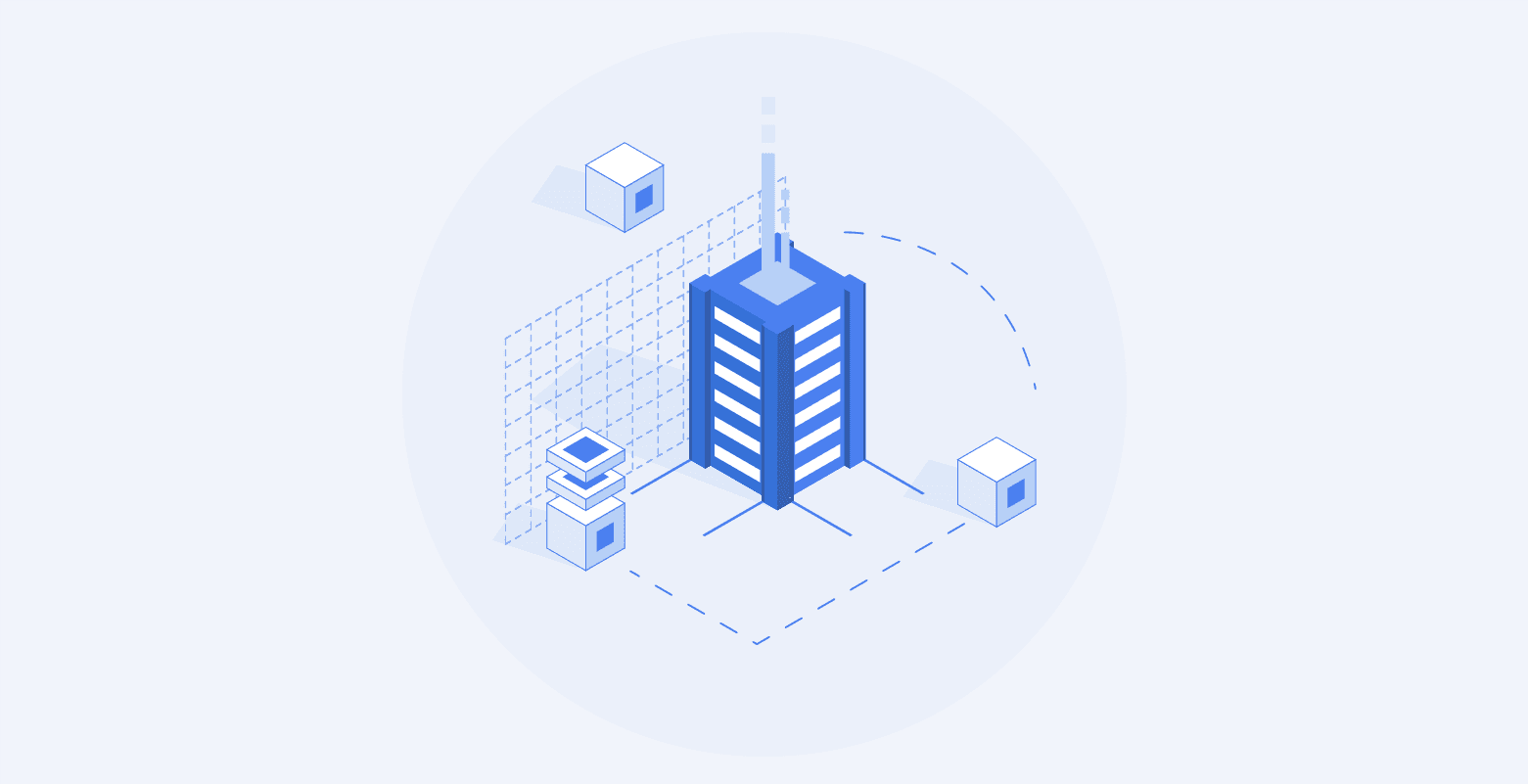
The Power of Anoymous Proxy: Safeguarding Your Online Privacy
Title: The Benefits of Using an Anonymous Proxy for Enhanced Internet SecurityIntroduction:In today's digital world, online security has become a top concern for individuals and businesses alike. With cyber threats on the rise, protecting your personal information and browsing activities has become essential. One effective solution is using an anonymous proxy. In this blog post, we will explore the concept of anonymous proxies and discuss their various benefits in enhancing online security.1. What is an anonymous proxy?An anonymous proxy acts as an intermediary server between your device and the websites you visit. When you access a website through an anonymous proxy, your IP address is masked, making it difficult for anyone to track your online activities.2. Protection of personal information:Using an anonymous proxy offers an added layer of protection for personal information. Hackers often target individuals by gathering their IP addresses and tracking their online activities. By using an anonymous proxy, your IP address is hidden, minimizing the risk of being targeted by malicious actors.3. Enhanced online privacy:Privacy concerns have become a significant issue in the digital age. Online advertisers and data collecting companies often track users' online behaviors to create targeted advertisements or sell personal information. By using an anonymous proxy, you can protect your privacy by preventing these entities from gathering your information.4. Protection against malware and phishing attacks:Unsecured internet connections are vulnerable to malware and phishing attacks. An anonymous proxy acts as a shield, filtering out malicious content and protecting your device from potential threats. This extra layer of security decreases the risk of falling victim to cybercrimes.5. Faster browsing speed:Another advantage of using an anonymous proxy is the potential for faster browsing speed. Proxy servers cache frequently accessed web pages, reducing the time it takes for the content to load. This is particularly beneficial when accessing heavily visited websites or when dealing with slow internet connections.6. Multiple server locations:Many anonymous proxy services offer a wide range of server locations worldwide. This feature allows users to choose a server location that best suits their needs, whether it be for accessing region-specific content or for better connection speeds.Conclusion:In conclusion, using an anonymous proxy can greatly enhance your online security and protect your personal information. By masking your IP address, you can browse the internet anonymously, bypass geographical restrictions, and safeguard against malware and phishing attacks. With the ever-increasing importance of online privacy, incorporating an anonymous proxy into your browsing habits is a wise decision. Explore the various proxy services available and choose the one that best fits your needs for a safer, more secure online experience.

The Power of Anymous Proxies: Safeguarding Your Online Privacy
Title: Exploring the World of Anonymous Proxies: Protecting Your Online PrivacyDescription: In today's digital age, safeguarding our online privacy has become an essential aspect of ensuring personal security. This blog post will delve into the world of anonymous proxies, explaining what they are, how they work, and the benefits they provide in terms of preserving anonymity and protecting sensitive information online. We will also discuss the potential risks and limitations associated with anonymous proxies, enabling readers to make informed decisions about their online privacy.Introduction:In today's interconnected world, where our personal and professional lives are increasingly reliant on the internet, ensuring our online privacy has become more crucial than ever. With a growing concern about surveillance, data breaches, and cyber threats, people are looking for effective ways to protect their digital identity. This is where anonymous proxies come into play. In this blog post, we will explore the concept of anonymous proxies, their functionality, and how they can help safeguard your online activities.1. Understanding Anonymous Proxies:Anonymous proxies act as intermediaries between your device and the internet, allowing you to browse the web while concealing your IP address. They redirect internet traffic through several servers, making it difficult for anyone to trace it back to your original location. These proxies can be used for various purposes, including bypassing internet censorship, accessing geo-restricted content, and enhancing online privacy.2. How do Anonymous Proxies Work?When you connect to the internet through an anonymous proxy server, your request is processed through multiple nodes, each having its own IP address. This process creates a virtual shield around your online identity, making it challenging for websites, advertisers, and even government agencies to track your activities. By masking your IP address, anonymous proxies ensure that your online actions remain anonymous and untraceable.3. Benefits of Using Anonymous Proxies:- Preserving Anonymity: Anonymous proxies help keep your online activities private by hiding your IP address, thus preventing websites and third parties from tracking your browsing behavior.- Accessing Geo-Restricted Content: By connecting through a proxy server located in a different country, you can bypass location-based restrictions and access content that may be otherwise unavailable in your region.- Enhanced Security: Anonymous proxies can add an extra layer of security to your browsing experience by encrypting your data and protecting it from cyber threats, such as hackers and malware.- Overcoming Internet Censorship: In regions where internet access is restricted or heavily monitored, anonymous proxies allow users to bypass these restrictions and freely access information.4. Risks and Limitations:While anonymous proxies offer several benefits, it is important to be aware of their limitations and potential risks. Some key considerations include:- Trustworthiness of Proxy Providers: Not all anonymous proxies are created equal. Some providers may log and sell your data, defeating the purpose of using a proxy for privacy.- Slower Internet Speeds: As data is routed through multiple servers, it can result in slower internet speeds compared to a direct connection.- Compatibility Issues: Certain websites and online services may block access from known proxy servers, making it difficult to use anonymous proxies in these cases.- False Sense of Security: While anonymous proxies provide an additional layer of privacy, they do not make you completely anonymous. Other techniques, such as changing the network environment and practicing good cybersecurity hygiene, are also crucial in protecting your online privacy.Conclusion:In an era where online privacy is paramount, anonymous proxies offer a valuable tool for individuals looking to protect their sensitive information and maintain their anonymity online. However, it is essential to be aware of the risks and limitations associated with anonymous proxies and to choose reputable providers who prioritize privacy. By understanding how these proxies work and staying informed about their benefits and limitations, you can take proactive steps to safeguard your online privacy in an increasingly interconnected world.

The Power of Data Aggregation: Unlocking Value in the Information Age
In the era of digital revolution, every action leaves a digital footprint - be it a website visit, an online purchase, or even a simple status update on social media. Consequently, businesses and organizations across various sectors are dealing with an unprecedented volume of data. The challenge, however, lies in harnessing this raw data and transforming it into actionable insights. This is where the concept of 'data aggregation' comes into play.What is Data Aggregation?Data aggregation is a process in which information is gathered and presented in a summarized format. This technique is crucial for handling extensive datasets, helping organizations to analyze complex data and extract valuable insights that inform strategic decision-making. Data aggregation can be performed on different types of data, such as numerical, categorical, or binary data.The aggregation process involves several steps: data extraction from various sources, processing using specific statistical methods, and presenting the aggregated data in an easy-to-understand format. For instance, 'sum,' 'average,' 'max,' 'min,' and 'count' are common aggregation functions that help users understand the nature of the data and make meaningful inferences.Manual vs. Automated Data Aggregation: The Quest for EfficiencyTraditionally, data aggregation was performed manually, which often proved to be a time-consuming and error-prone process. As businesses grow and data proliferates, manual aggregation becomes unsustainable due to scalability issues, slower time-to-market, and the potential for human error.Automated data aggregation, on the other hand, increases efficiency by eliminating these issues. With advancements in artificial intelligence and machine learning, automated aggregation tools are able to handle larger datasets, process data faster, and provide more precise results. Additionally, automation reduces the risk of omission of vital data sources or patterns, a common issue in manual processes.Choosing the Right Data Aggregation ToolSelecting the right data aggregation tool can be a complex process, largely depending on an organization's specific needs. Factors such as industry type, data volume, technical capabilities, and the level of required automation play a crucial role in the selection process.It's important to thoroughly evaluate an organization's requirements and seek advice from data professionals before investing in a tool. This careful planning can help ensure the selected product aligns with the organization's goals and maximizes the benefits of data aggregation.Applications of Aggregated DataAggregated data plays a crucial role across industries. In the retail sector, for instance, it helps in competitive analysis and targeted marketing. For the travel industry, it provides insights into changing travel preferences and market trends. Similarly, healthcare organizations use aggregated data for disease monitoring, predicting health trends, and enhancing patient care.Moreover, in marketing, data aggregation provides insights into the effectiveness of marketing campaigns across different segments and audiences. By analyzing aggregated data, businesses can make well-informed decisions, improve operations, and drive innovation.Navigating the Challenges of Data AggregationWhile data aggregation offers significant benefits, it also brings a set of challenges. One primary concern is data privacy. As aggregation often involves personal information, it's essential to ensure the consent of individuals and comply with data privacy laws.Another concern is data quality. Ensuring the accuracy, completeness, and consistency of data can be difficult, especially when dealing with large, diverse data sources. Businesses must implement stringent data quality checks to prevent incorrect or misleading insights.The Interplay Between Data Aggregation and IP ProxiesIn the grand scheme of data aggregation, IP proxies LIKE.TG play a critical role in facilitating efficient and comprehensive data gathering from the web. Data aggregation involves the collection, processing, and presentation of data from various sources, providing valuable insights and information to drive informed decision-making. IP proxies aid in this process by enabling large-scale, anonymous data collection from diverse web sources. They allow data aggregation tools to bypass website restrictions, access location-specific data, and prevent IP blocking or banning due to high-volume requests, which are common when aggregating data. With the ability to rotate or switch between a pool of IP addresses, proxies ensure continuous, uninterrupted data gathering, thereby enhancing the effectiveness of data aggregation. Thus, IP proxies serve as vital tools in the data aggregation pipeline, enhancing the efficiency, scope, and success of data collection endeavors.The Future of Data AggregationAs we move further into the information age, the role of data aggregation will only continue to grow. Future aggregation tools, powered by advanced AI and machine learning algorithms, will handle larger and more complex datasets, providing even more precise and actionable insights.In conclusion, data aggregation is a powerful tool in the era of big data. By harnessing this technique, organizations can unlock the full potential of their data, drive strategic decision-making, and gain a competitive edge in their respective markets.
相关产品推荐




































